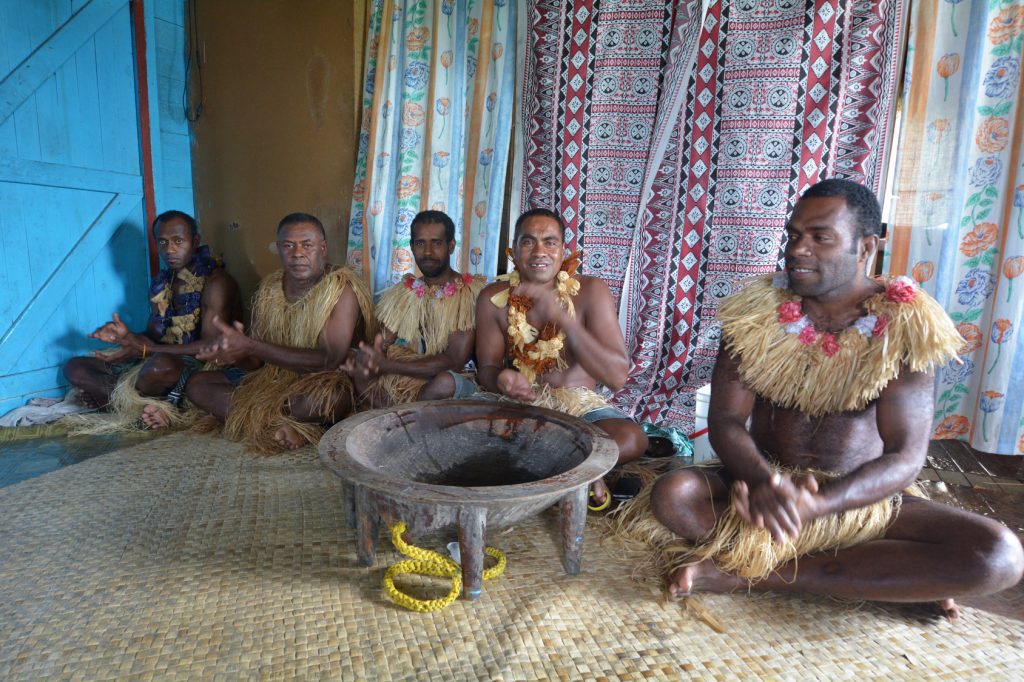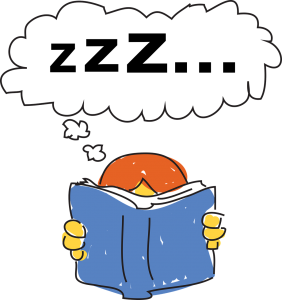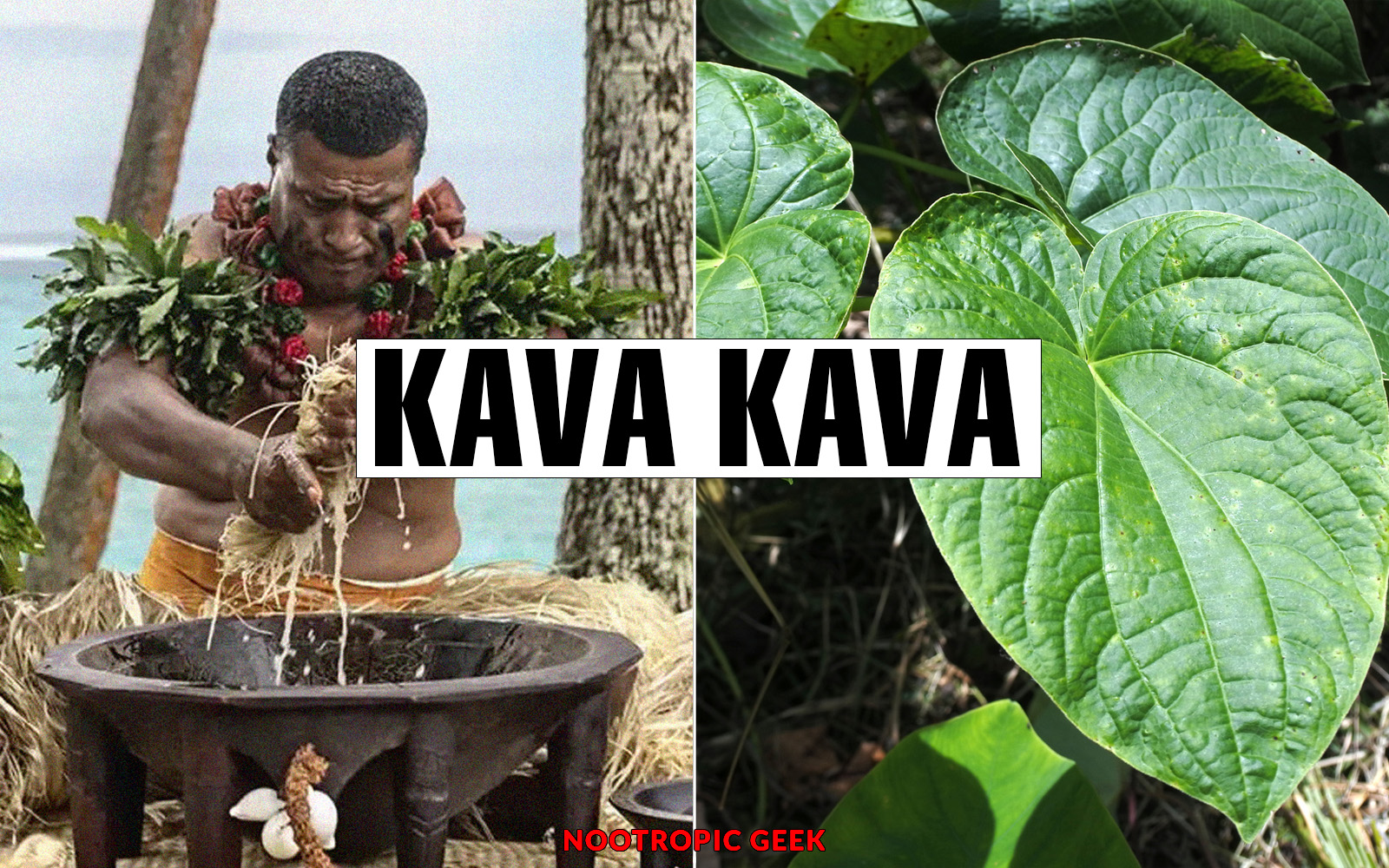Summary: Kava Kava Review
Kava kava is a psychotropic plant found in the Pacific Islands used in traditional Polynesian brews for social gatherings & other cultural ceremonies. Valued for its focus-enhancing relaxation, kava help reduce anxiety while improving cognition for general boosts in wellbeing. Advertised in hipster spots as a sort of “alcohol substitute,” kava can mess you and make you all loopy in a feel-good way (minus the hangover). I personally wouldn’t get messed up on this out in public, but I have some buds who say it helps with their social anxiety fwiw. All the same, it’s fair to think of kava as a “social psychotropic,” if you will.
Page Contents
How Kava Kava Is Supposed to Work

Piper methysticum (or kava kava [or just kava]) is a native plant to the Pacific Islands and a key cultural & historical aspect to Polynesian social gatherings.
Some kava users liken the experience to drinking alcohol for its potent tranquilizing effects, however unlike alcohol kava seems to sustain, or even promote, cognition–particularly as it relates to anxiety, tension, & stress. In fact, it’s the focus-enhancing relaxation (similar to ashwagandha, more powerful than L-theanine) that establishes kava as a social substance.
Related:
Best Nootropics for Anxiety
And it’s this same benefit that has drawn researchers to explore its therapeutic value for hyperattentive, hyper-anxious, hyper-etc. disorders, a few studies pointing to the following bio-actions:
Non-Opiate, Non-Sedative Psychoactivation
Through vaguely understood biopathways kava kava’s bioactive kavalactones have been demonstrated to possess psychoactive qualities rarely seen in other substances. Their ability to cross the blood-brain barrier allows for them to directly “intoxicate” the brain, albeit through non-opiate pathways, delivering non-narcotic effects in a short amount of time. Some research indicates the psychoactivation to be a result of GABA receptor modulation, which corroborates with the herb’s role as a relaxing anxiolytic.
Weak Activation of GABA Receptors
The neurotransmitter gamma-aminobutyric acid (GABA) is associated with relaxation via inhibition of excess “excitatory” neuronal activity. Kava is believed to enhance GABA expression through weakly activating GABA receptors, effectively increasing the number of binding sites for GABA. While this may partially explain kava’s anxiolysis, it does not yet significantly correlate with kava’s full effect on the brain.
Related:
Best Nootropics for Stress
Unpredictable Fluctuation of Dopamine
Given the feel-good “intoxication” association with kava kava, dopamine is a valid concern, particularly in regards to the plant’s risk abuse. Unfortunately, the research is widely mixed on this point: Some studies indicate generous increases in the brain chemical; others suggest of decreases. Based on what I’ve read I think it’s safe to say that dopamine is affected, but we’ll need more (& better) research to investigate this subject before drawing any conclusions.
Does Kava Kava have Side Effects?
Liver damage is the primary concern with kava kava, however there is little research in support of this notion. Conversely, some animal models suggest of kava having a non-toxic stance on the liver and, in some cases, even liver protective effects. Cases of liver damage have been reported in Europe, yet it remains unclear if kava was the prime perpetrator and not any other number of confounders. At the least, in one assessment on kava’s toxicity profile, the herb was found to be safe at 280 mg kava lactones/day for 4 weeks.
Kava Kava Benefits

Similar to alcohol, marijuana, kratom, and other social psychotropic drugs (*”drugs” based on their general legal status), kava kava is a psychoactive herbal “drug” traditionally used for the sake of social gathering: Its hypnotic, anxiolytic benefits having a tongue-loosening effect that eases communication & social anxiety. However, as a supplement & pharmaceutical, kratom extract is administered for a number of disorders: anxiety, depression, insomnia, stress, irritation–cognitive ailments essentially related to feelings of anxiety & discontentment.
The nootropic community has latched onto this herb for its cognitive enhancing abilities, particularly on cognitive speed & short-term memory. Yet, it remains to be seen whether or not these boosts on cognition are a direct result of kava kava supplementation or an indirect effect of kava’s decrease in stress, anxiety, discontentment, etc.
Researchers Have Suggested Kava Kava Might:
Enhance cognitive performance & cheerful mood in healthy adults
In this randomized, double-blind, placebo-controlled study the acute effects of kava kava extract (300 mg) on cognitive performance & mood were investigated, involving healthy adult volunteers. To measure mood & performance, the state-trait-cheerfulness-inventory (mood) and the Sperling partial report & Sternberg item recognition task (cognition) were performed, all of which demonstrated improvement following kava consumption. This lead to the conclusion that, unlike conventional pharmaceutical anxiolytics that impair cognitive performance, “Kava is a potent anxiolytic agent, which, additionally, can facilitate cognitive functioning and can increase positive affectivity related to exhilaration.”
Ameliorate Generalized Anxiety Disorder for a short term
Another randomized, double-blind, placebo-controlled study, this time in observance of kava kava extract’s (120/140 mg kavalactones daily depending on response) effects on generalized anxiety disorder (GAD). For 6 weeks 75 participants (reduced to 58) were administered either kava kava or placebo, their anxiety levels measured by the Hamilton Anxiety Rating Scale. Aside from a higher report of headaches in the kava group, the herb was found to significantly improve GAD measures, with 26% of the group classified as remitted. The researchers concluded the study by stating, “Standardized kava may be a moderately effective short-term option for the treatment of GAD.”
Improve sleep disturbances related to anxiety & tension

This study investigated the efficacy & safety of kava extract (WS1490) in patients diagnosed with sleep disturbances spurned by anxiety, tension, & restlessness of non-psychotic origin. Over a period of 4 weeks the patients were administered either 200 mg WS1490 or placebo, while performing sleep questionnaires, the Hamilton Anxiety Rating Scale, & self-reports of wellbeing. The results indicated improvements on all of these measures, particularly in the category of wellbeing, with high ratings of safety & tolerability. The conclusion: “sleep disturbances associated with non-psychotic anxiety disorders can be effectively and safely treated with kava extract WS 1490.”
Related:
Best Nootropics for Sleep
How to Take Kava Kava
- Recommended kava consumption may vary by supplement, however shoot for an extract dose that confers 250 mg kavalactones.
- Natural brewed kava should be limited to a drink or two, if the goal is to enhance cognition (and not intoxicate it).
- Certain sources advise seeking the WS1490 kava extract. I’ve yet to find a reliable dispensary for this extract, and this seems to be a common trend, according to reddit.
My Experience with Kava Kava
While I’m not a frequent kava kava user, I am a big fan of the stuff. Especially when I’m trying to quit booze cold-turkey for awhile, yet still want a little somethin-somethin to leave me feeling good (and relaxed) in the evening.
And kava kava really does work as a relaxing agent.
It works perhaps too good if you’re not expecting it.
Maybe I’m taking too much, but I find that I’m too zonked out to be *sociable* while drinking kava kava, which otherwise has a reputation as a drink for social gatherings. The first time I drank kava, I drank it with my brother, and we both found it difficult to do anything other than smile and stare at our phones. Any ongoing meaningful discussion was out of the question.
Not that every experience is like this. There are times that I take a small amount and simply feel good and relaxed. But I personally get the most out of kava as a pre-bedtime sleep aid. Something to sip on while I watch YouTube in bed before conking out.
Plus, the tongue-numbing effect of this stuff is kind of fun.
Conclusion: Is Kava Kava Safe for Anxiety & Sleep?
Kava kava is both valuable in a recreational & therapeutic sense.
But does it legitimately qualify as a nootropic?
I’m going to say: Yes, if used correctly. And to answer the question in the title: Yes, kava is safe for anxiety & sleep.
This is an important question to answer as these are typically the two reasons that people “take” kava, aside from its social benefits (and also aside from its general mood benefits, which can be fun on their own in a non-therapeutic context).
For social settings, I can see kava extending beyond a social substance to an anti-social-anxiety substance. Likewise for workplace settings, kava’s psychotropic relaxation may help rid the mind of stressful distractions, supporting sharper thinking & cognitive performance.
Granted, much of this just conjecture until we get more studies. And, if I’m being entirely honest, I’m not sure if more research or less research would help the kava cause: Would a giant kava industry promote or erode the cultural value of this potent herb? Especially if it leads to governmental regulation à la kratom?
For now, kava is worth checking out, if you’re curious. Even for non-performance-related effects, kava is great for the occasional feel-good “high” so to speak.
Overall Kava Kava Nootropic Power Rating
Brain Energy
Neurotransmitters
Cerebral Circulation
Brainwaves
Brain Regeneration
Neuroprotective

Leave a Reply